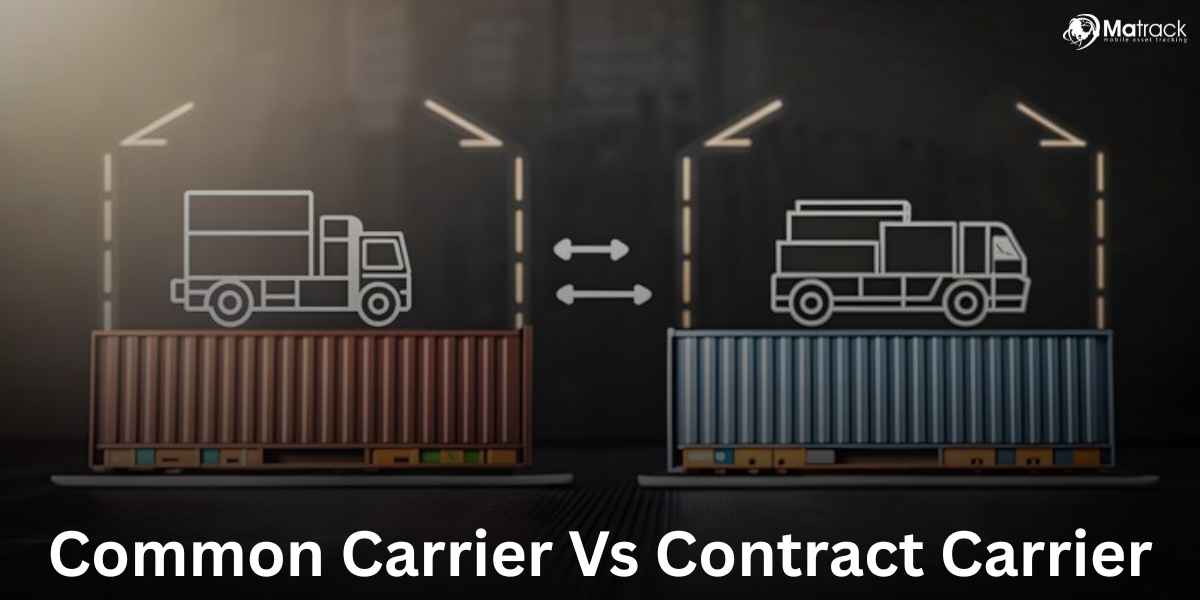Key Takeaways:
- A common carrier offers open transport services with fixed rates and must accept all qualifying shipments.
- A contract carrier works under private agreements, serving only specific clients with customized service terms.
- Common carriers follow strict liability rules and standardized routes, while contract carriers allow more control over logistics and risk.
- Businesses must align their carrier choice with shipment regularity, handling needs, and the level of service control they require.
What Is A Common Carrier?
A common carrier is a transportation company that offers its services to the general public under legal obligation. It must deliver goods or passengers for a fee, without selective conditions, as long as the shipment complies with its terms.
Unlike private or selective carriers, a common carrier must accept any shipment that meets safety and policy standards. This legal obligation prevents discrimination and ensures consistent availability across industries.
Courts hold common carriers strictly liable for cargo loss or damage unless specific exceptions apply. This liability standard creates a higher level of trust in public transportation services.
Key Features Of A Common Carrier
Public Access
A common carrier offers transport services to anyone who meets its standard requirements. This public obligation prevents selective treatment and ensures broad access to logistics or travel.
Regulated Rates
All charges by a common carrier are based on publicly available tariffs. These rates are regulated to maintain fairness and consistency across customer types.
Fixed Schedules
A common carrier runs on predetermined routes and follows fixed delivery or service schedules. This structure creates reliable timing and standardized availability.
Strict Liability
The law holds a common carrier strictly liable for any damage or loss during transit. Only specific legal exceptions, such as acts of nature or shipper negligence, release that liability.
Government Oversight
Common carriers operate under direct oversight from transport authorities. Licensing, safety compliance, and insurance requirements are legally enforced to protect public interest.
What Are The Benefits And Challenges of Common Carriers?
| Benefits | Challenges |
| Open access to services for all eligible customers | Limited flexibility in service customization |
| Regulated pricing ensures cost transparency | Must comply with strict legal and regulatory standards |
| Standardized operations increase reliability | Cannot refuse service without valid legal reason |
| Legal protection through strict liability enforcement | Higher insurance and compliance costs |
| Wide service coverage across routes and regions | Fixed schedules may not meet unique timing needs |
| Non-discriminatory service builds public trust | Limited control over cargo selection and handling methods |
When To Use A Common Carrier?
Use a common carrier when:
- Shipments vary in timing, frequency, or destination.
- Shipping costs must be predictable with published rate cards.
- Dedicated capacity isn’t required, and flexibility is prioritized.
- You ship infrequently, or loads are light-to-medium.
- Regulatory transparency and uniform treatment are essential.
Industries relying on common carriers include e-commerce startups, small manufacturers, and occasional exporters.
What Are The Examples Of Common Carriers?
- Trucking services hauling freight for any shipper meeting basic service terms.
- Rail freight lines moving goods across standard routes open to public contracts.
- Bus companies offering long-distance travel to all ticketed passengers.
- Maritime shippers transporting cargo under fixed schedules and published rates.
- Local transit systems providing daily access to commuters across city routes.
- Courier networks delivering parcels from individual and business senders.
- Airlines operating commercial passenger flights with fare-based seating.
- Postal services accepting and distributing mail for public use.
What Is a Contract Carrier?
A contract carrier is a transportation provider that offers services only to specific clients under a written agreement. It does not serve the general public and operates based on negotiated terms.
The carrier enters into individual contracts that define routes, rates, liability, and service schedules. Each agreement is tailored to the shipper’s needs rather than standard public offerings.
Contract carriers have the flexibility to refuse service to non-contracted parties. Their operations focus on long-term efficiency, service consistency, and business-specific logistics.
Key Features of a Contract Carrier
Private Client Agreements
A contract carrier operates through individual contracts with businesses. These agreements set custom service terms and define operational responsibilities.
Flexible Pricing Models
Contract rates are privately negotiated between the carrier and client. Prices can reflect volume, distance, frequency, or specialized handling.
Dedicated Service Structure
Most contract carriers assign specific vehicles and drivers to contracted clients. This allows consistent routing, repeat scheduling, and reliable performance.
Custom Liability Terms
The level of liability is based on what’s agreed upon in the contract. Responsibility for loss or damage depends on proof of negligence or breach.
Selective Access
A contract carrier is not required to serve the public. It can accept or reject clients based on capacity, cargo type, or long-term partnership potential.
Regulatory Recognition
Contract carriers must obtain proper operating authority and maintain liability insurance. However, they are not required to publish rates or operate under tariffs.
What Are The Benefits And Challenges Of Contract Carriers?
| Benefits | Challenges |
| Custom service tailored to specific business needs | Not available to general public or small-volume shippers |
| Flexible pricing based on volume or complexity | Contract setup requires time and legal clarity |
| Dedicated vehicles and consistent delivery schedules | Less adaptability for non-routine or ad-hoc shipments |
| Limited liability through negotiated contracts | Clients must manage risk if insurance terms are limited |
| Selective control over cargo and routes | Fewer regulatory protections for shippers |
| Efficient partnerships with long-term value | Contract termination can disrupt supply chain stability |
When To Use A Contract Carrier?
Use a contract carrier when:
- Shipment volume is high and consistent.
- Service needs are specialized—like hazmat, cold chain, or oversized cargo.
- You require dedicated trucks and drivers for reliability.
- You want to lock in pricing and performance expectations through long-term contracts.
- Regulatory filing and public tariff access are unnecessary.
Industries favoring contract carriers include big-box retail chains, construction material suppliers, and pharmaceuticals.
What Are the Examples of Contract Carriers?
- Trucking fleets assigned to serve specific manufacturers or suppliers.
- Freight operators providing daily deliveries under exclusive service terms.
- Carriers handling specialized cargo like chemicals or medical goods under contract.
- Logistics providers dedicated to long-term retail or distribution chains.
- Private bus services operating under fixed contracts with corporate clients.
- Container lines offering space only to contracted shippers with recurring volumes.
- Delivery services tied to subscription-based businesses.
- Equipment transporters working solely with construction firms.
Key Differences Between Common Carrier And Contract Carrier
| Attribute | Common Carrier | Contract Carrier |
| Service Availability | Available to the public without selective terms | Available only under contract |
| Regulatory Filing | Must file tariffs, comply with non-discrimination laws | Private contracts, no public tariff filing |
| Liability Standard | Strict liability unless legally exempted | Negligence-based liability defined by contract |
| Pricing | Published tariffs and regulated rates | Negotiated rates based on volume and services |
| Operational Flexibility | Fixed schedules, routes, and service tiers | Customized terms, capacity, and logistics |
| Use Case | Ad hoc or inconsistent shipping | High-volume, predictable, or specialized shipping |
Regulatory Bodies and Compliance
Federal Oversight
Both common and contract carriers are regulated by the Federal Motor Carrier Safety Administration (FMCSA) and the Department of Transportation (DOT). These agencies monitor safety, licensing, insurance, and operational compliance.
Common Carrier Requirements
Common carriers must file tariffs under 49 CFR Part 1312, which includes publishing rates, service terms, and conditions. They are also required to provide non-discriminatory service to all qualifying customers.
Contract Carrier Requirements
Contract carriers must obtain contract authority and meet federal insurance minimums. They are responsible for following all safety and operational standards but are not required to publish rates or serve the public.
Final Verdict
Common carriers are ideal for businesses that ship infrequently, need broad access, and prefer fixed pricing. Their structure supports open service and standard logistics without long-term commitment.
Contract carriers suit companies with steady shipping needs and specific handling requirements. These carriers offer more control, consistent schedules, and tailored service through private agreements.
The decision depends on shipment frequency, cargo type, and the level of operational flexibility required. Matching the carrier type to the logistics need ensures better cost control and service reliability.



